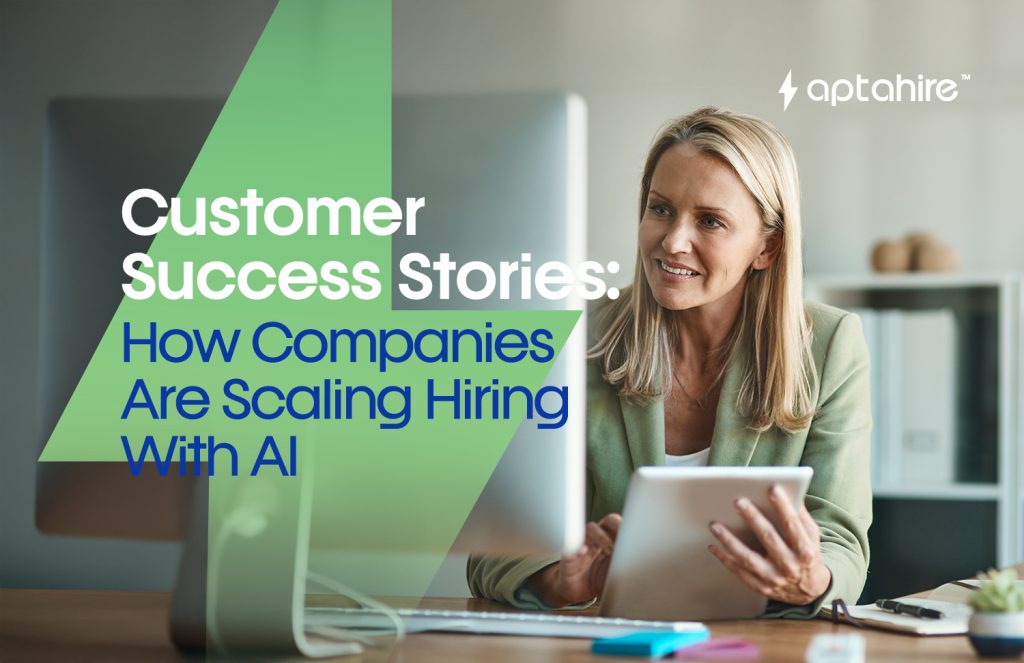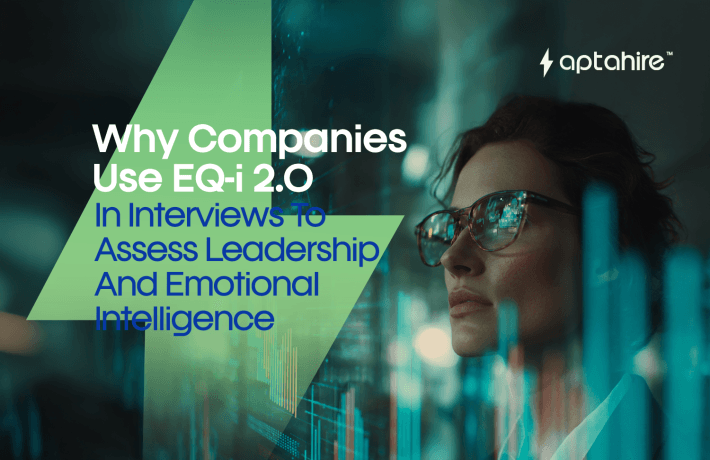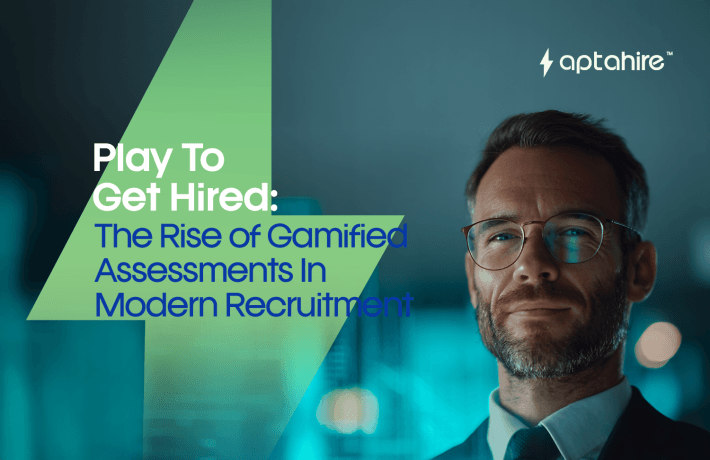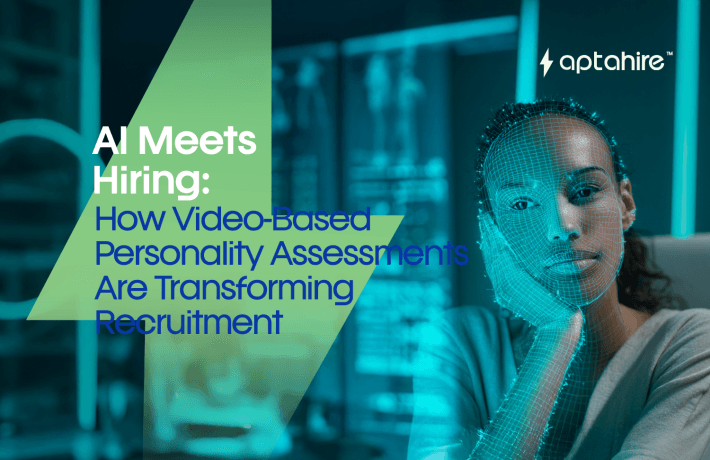Customer Success Stories: How Companies Are Scaling Hiring with AI

Introduction
Hiring the right talent has always been one of the most mission-critical and resource-intensive parts of running a business. Whether it’s a high-growth startup trying to scale rapidly, a multinational retail chain hiring in bulk across cities, or a healthcare provider needing certified professionals fast, recruitment can make or break momentum.
Traditionally, hiring has been bogged down by manual processes, long turnaround times, limited reach, and the constant battle to find quality candidates from a sea of resumes. Recruiters often find themselves overwhelmed, and hiring managers frequently struggle to find candidates who have the right mix of skills, culture fit, and readiness.
Enter AI in recruitment, a transformative solution that’s reshaping how companies approach hiring at scale. From resume screening and candidate scoring to AI video interviews and predictive analytics, artificial intelligence is helping businesses hire faster, better, and more efficiently. What was once a slow and reactive process is now a strategic, data-powered system that can scale with the demands of modern business.
But the best way to understand AI’s impact on hiring isn’t just through features and buzzwords, it’s through real-life stories. In this blog, we’ll explore how companies from different industries have successfully used AI to scale their hiring processes. These aren’t theories, these are success stories backed by measurable results.
If you’re wondering how AI can solve your specific hiring challenges, you’ll likely see a version of your story here, just a few steps ahead.
1. The SaaS Company That Reduced Time-to-Hire by 65%
Challenge: A mid-sized SaaS company was scaling fast, but its recruitment team couldn’t keep up with the rapid hiring needs. Screening hundreds of applicants manually was eating up precious time, and by the time a candidate was shortlisted, they had often already accepted another offer.
Solution: The company implemented an AI hiring tool that used machine learning to screen resumes, analyze skill matches, and rank candidates automatically.
Result:
- Time-to-hire dropped from 28 days to 10 days.
- The HR team reported 65% faster screening.
- Candidate drop-off rates fell by 40%.
Takeaway: Automating the early stages of the funnel helped the team focus more on interviewing and cultural fit, not sifting through resumes.
2. A Manufacturing Firm That Built a Skilled Workforce with AI Interviews
Challenge: A traditional manufacturing company faced difficulties hiring skilled labor across multiple regions. They needed a system that could assess both technical ability and communication, but they didn’t have the bandwidth for face-to-face interviews for every candidate.
Solution: They switched to an AI video interviewing platform with body language analysis, voice modulation scoring, and domain-specific question sets.
Result:
- Interviewing capacity increased by 4x without increasing HR headcount.
- They identified high-performing candidates with better precision based on AI behavior tracking.
- 70% of new hires passed probation, up from 55%.
Takeaway: AI not only made the hiring process more scalable, but also more data-driven and predictive.
3. A Global Retail Chain That Personalized Hiring Across 20+ Locations
Challenge: The company needed to hire retail staff across 20+ cities simultaneously, each with its own language, culture, and customer expectations. A one-size-fits-all hiring approach just didn’t work anymore.
Solution: AI was used to localize job descriptions, tailor interview questions per region, and rank candidates based on store-specific requirements like shift flexibility, language skills, and customer service ratings.
Result:
- Reduced attrition in the first 60 days by 25%.
- Increased diversity in hiring pools across all locations.
- Store managers reported more job-ready hires from day one.
Takeaway: AI can personalize hiring at scale, something that’s nearly impossible with traditional processes.
4. A Healthcare Provider That Ensured Compliance and Speed
Challenge: In the healthcare industry, hiring isn’t just about speed, it’s about safety, credentials, and regulatory compliance. The recruitment team struggled to vet certifications, licenses, and background checks quickly for urgent nursing roles.
Solution: They integrated an AI recruiting platform with automated compliance verification. The system could flag expired documents, validate licenses in real time, and pre-fill onboarding checklists.
Result:
- 80% reduction in document-related onboarding delays.
- Time-to-fill reduced by 12 days for clinical roles.
- HR compliance audit scores improved drastically.
Takeaway: AI not only speeds up hiring, it reduces legal risk and improves onboarding readiness.
5. A Startup That Hired Its Core Team in Just 3 Weeks
Challenge: A fast-growing fintech startup needed to build its founding team of developers, marketers, and salespeople, all within 3 weeks. The founders didn’t have a dedicated HR team and were struggling with sourcing and shortlisting.
Solution: They signed up for an AI recruitment solution that handled the entire funnel, from sourcing passive candidates using behavioral signals to AI-generated assessments.
Result:
- Hired 8 core team members in just 21 days.
- All candidates passed technical and culture fit assessments.
- The founders saved over 150 hours of manual recruitment time.
Takeaway: AI gives lean teams the superpowers of a full-scale HR department.
Why AI Works for These Companies
From these success stories, it’s clear that AI recruitment isn’t about replacing human recruiters, it’s about augmenting their capabilities. AI helps in:
- Speeding up repetitive tasks like resume screening and scheduling.
- Making decisions more data-driven, reducing bias and gut-feel hiring.
- Scaling recruitment processes without sacrificing quality.
- Improving candidate experience with faster responses and structured feedback.
Whether it’s a retail chain hiring in bulk or a startup trying to move fast, AI adapts to the hiring context and makes it better.
The Future is AI-First Hiring
We’re entering an era where the question isn’t “Should I use AI to hire?”, it’s “How fast can I adopt AI to stay ahead?”
And it’s not just about speed or efficiency. AI is helping businesses:
- Build more diverse teams.
- Hire with more accuracy.
- Improve employee retention with better matches.
In short, AI isn’t just transforming hiring, it’s scaling success.
Conclusion
As we’ve seen from these success stories, AI in recruitment isn’t about taking the “human” out of hiring, it’s about removing the inefficiencies that hold your people back from doing their best work. Whether it’s shortlisting candidates in seconds, automating compliance checks, or analyzing behavioral cues in interviews, AI is giving HR teams more clarity, speed, and confidence in their hiring decisions.
These companies, from fast-growing startups to legacy enterprises, didn’t wait for AI to become the industry norm. They embraced it early, adapted quickly, and are now reaping the rewards of scalable, smart, and bias-reduced hiring. And the best part? These tools are no longer limited to big-budget enterprises. Today’s AI hiring platforms are accessible, easy to implement, and customizable for businesses of all sizes.
So, if you’re still relying on outdated methods, now might be the perfect time to evolve. With AI by your side, hiring doesn’t have to be a bottleneck, it can become your business’s biggest competitive advantage.
The future of recruitment is not just digital, it’s intelligent.
And it’s already here. Are you ready to hire smarter?
FAQs
1. How exactly does AI help companies scale their hiring process?
AI automates time-consuming tasks like resume screening, candidate ranking, interview scheduling, and even initial assessments. This means recruiters can handle a larger volume of candidates without sacrificing quality, allowing companies to scale hiring efficiently and reduce time-to-hire.
2. Are these AI tools only useful for tech companies or startups?
Not at all. AI hiring tools are being used successfully across industries: including healthcare, retail, manufacturing, BFSI, and more. From small businesses to enterprise-level organizations, AI is helping all types of companies scale their hiring depending on their unique needs.
3. What kind of results can companies expect by using AI for recruitment?
Based on customer success stories, companies have seen a 40–70% reduction in time-to-hire, increased hiring accuracy, lower candidate drop-off rates, and higher retention of new hires. These results vary by use case but consistently show improvement in hiring efficiency and outcomes.
4. Can AI really assess soft skills and culture fit?
Yes. Modern AI hiring platforms use behavioral analysis, voice tone tracking, facial expression cues, and contextual NLP (Natural Language Processing) to evaluate soft skills like communication, confidence, empathy, and cultural alignment. While final decisions still require human judgment, AI provides insightful data to support those decisions.
5. Is AI hiring biased or does it promote fairer recruitment?
If trained correctly, AI can reduce bias by focusing on skills and qualifications over age, gender, race, or other irrelevant factors. However, transparency and ethical AI development are crucial. Companies must choose platforms that are regularly audited for fairness and DEI compliance.
6. What types of roles can AI hiring platforms help with?
AI can assist in hiring for entry-level to senior roles, both technical and non-technical. From software engineers and data analysts to retail associates, customer support, healthcare professionals, and manufacturing workers, AI adapts to the job role and required competencies.
7. How do companies get started with AI in hiring?
Most companies start by identifying their biggest recruitment bottlenecks, like screening delays or poor candidate matches, and then implement an AI tool that solves that specific problem. Many platforms offer plug-and-play integrations with ATS (Applicant Tracking Systems), making onboarding simple and quick.



